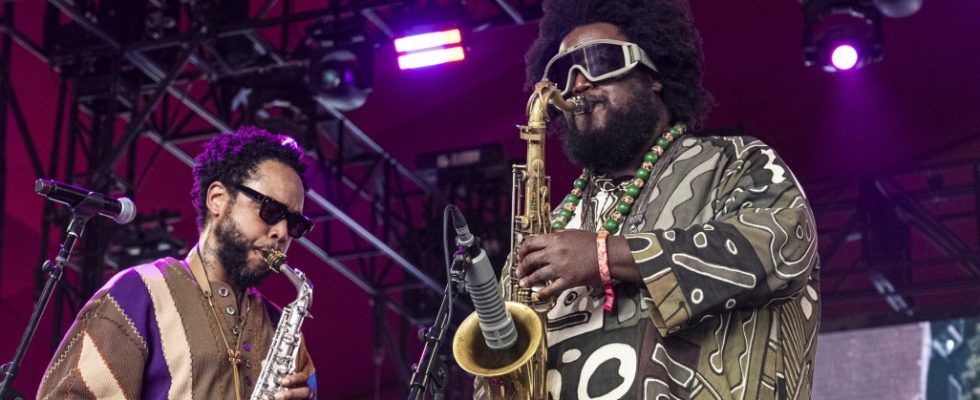If you break free from the notion that a hip-hop song has to have a rapper at some point, and that a jazz combo has a rhythm section, you’re on dinner partya decidedly unpretentious supergroup. Terrace Martin is there, who brought jazz into hip-hop as a producer of Derrick Lamar. The tenor saxophonist Kamasi Washington, who transposed the esprit de corps of hip-hop into jazz. The pianist Robert Glasperwho sees the dissolution of genre boundaries as a declaration of war, and 9th Wonder, who works as a DJ and producer with residencies at Harvard and Pennsylvania Universities and on the advisory board of the National Museum of African American History and Culture known as the public intellectual of hip-hop in Washington.
At some point in the misery of the first summer of the pandemic, her first album appeared. There were no commercials, no performances anyway, but they cut through the streams and blogs with their extremely chilled hip-hop-jazz fusion for an extremely tense time. A little later they released a new version of their debut, which featured the likes of Herbie Hancock, Snoop Dogg and Bilal. Now they have recorded an album entitled “Enigmatic Society” (Sounds of Crenshaw). This time there was even a bit of advertising. Last week they played live on late-night host Jimmy Kimmel’s show. Sprawled out on sofas (they take relaxation very seriously). Last Saturday they then performed at the Coachella Festival, a little further away, but still on the high point of Saturday evening in the run-up to the current reigning superstars BlackpinkRosalia and Boygenius.
All four are masters of this warmth of “jazzism” that runs through hip-hop like a Gulf Stream
Now, the seemingly erratic guest lists aren’t a coincidence, nor are Dinner Party a traditional supergroup. Terrace Martin and Kamasi Washington have been friends since school days in Los Angeles. You know Robert Glasper from around the turn of the millennium, when all three were passed through the academies and workshops for gifted students. 9th Wonder is an inevitable addition with its flair for jazz harmonies and swing. The guest list is also recruited from companions. Alto saxophonist and keyboardist Terrace Martin has been working on a still-unreleased Herbie Hancock album for years. Kamasi Washington was in Snoop Dogg’s touring band for a long time. 9th Wonder broke through with a sample by Bilal.
The music on the new album is characterized by the same nonchalance with which G-funk hip-hop from California once emancipated itself from the aggression of its New York competitors. In addition, all four are masters of this warmth of “jazzism” that differs from De La Soul until Kendrick Lamar runs through the history of hip-hop like a Gulf Stream. Nothing freezes in the otherwise jarring genre, which usually translated the harshness of the Afro-American experience into music without the clauses of jazz and soul. At the dinner party, Martin’s and Washington’s saxophones glide over soft grooves and even softer piano harmonies, singers thread themselves in.
On “Enigmatic Society” it sounds even rounder, even more mature than at the beginning. Towards the end they even venture onto the Yacht Rock, that pinnacle of late ’70s pop virtuosity. Then they condense Hall & Oates’ “I Can’t Go For That” with that West Coast hip-hop jazz quill that the two rock stars would have meant back then, if it had existed. De La Soul made a track out of the song 35 years ago. But that doesn’t come full circle. There is only one groove that makes its way through the decades, which is much more coherent than Daryl Hall could have imagined when he recorded it in the spring of 1981 in the Electric Ladyland Studios in the then sensationally modern Roland CR 78 drum machines programmed.

